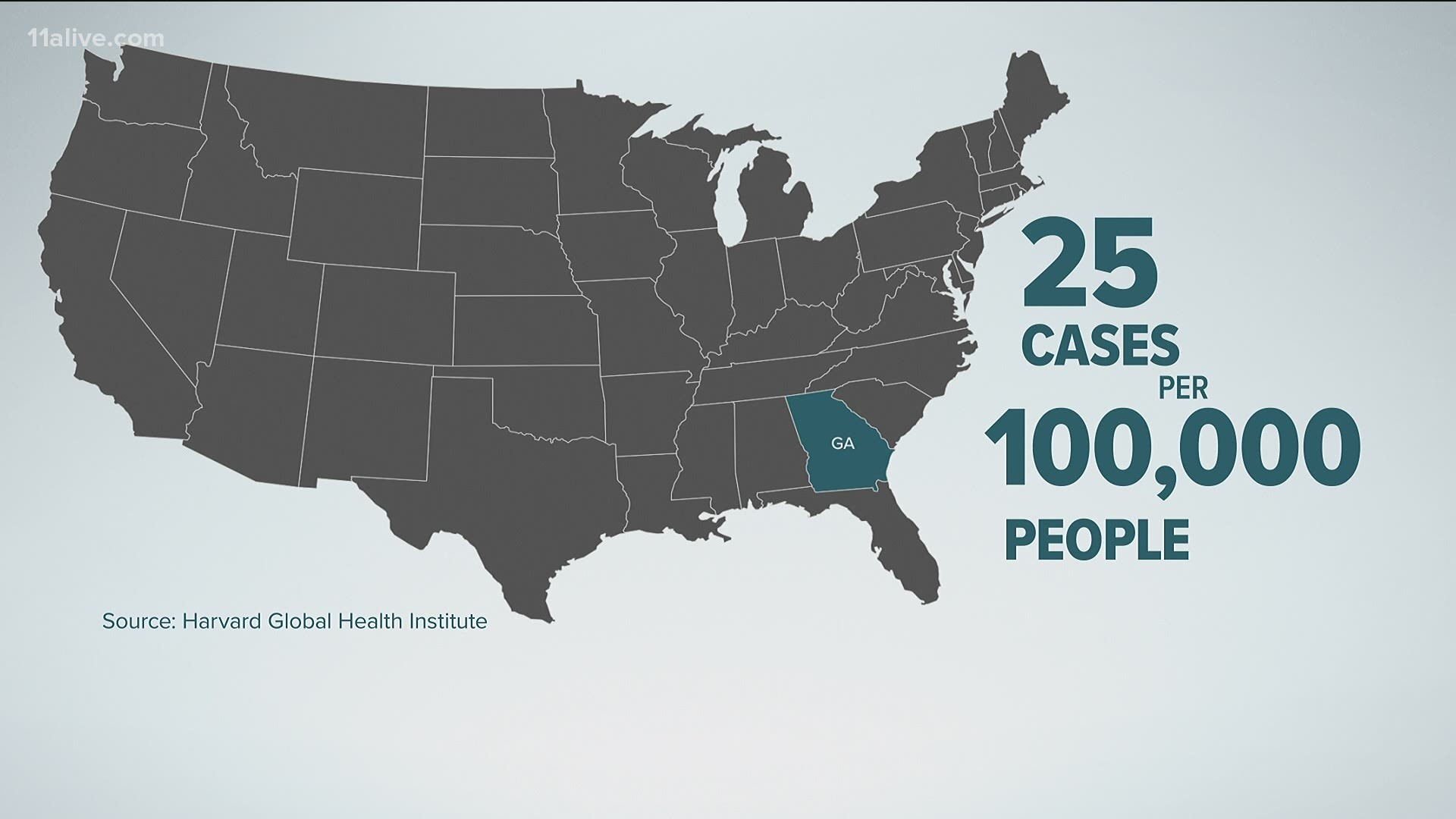ATLANTA — It's a designation no state wants -- two different models declaring you're more likely to get COVID-19 in Georgia than anywhere else in the country.
We've been among the worst states for weeks, but this is the first time Georgia has landed in the top spot.
"COVID-19 is alive and well and it continues to spread in our communities," Dr. Harry Heiman said.
Heiman told 11Alive's Tracey Amick-Peer that he is not surprised to see Georgia ranked number one in two different assessments. One from Harvard and another out of Georgia Tech.
Each of the citing Georgia as the "most likely" state where someone may be exposed to the coronavirus.
According to the Harvard Global Health Institute, Georgia leads the country in positive cases, with more than 25 cases per 100,000 people.
Breaking it down, these counties are considered to be at a "tipping point," meaning medical resources are close to becoming overwhelmed:
- Hancock
- Gilmer
- Newton
- Cherokee
- Gwinnett
- Clayton
- Bartow
- Polk
These counties are considered to be at an "accelerated spread" -- with stay-at-home orders and/or rigorous test and trace programs advised:
- Fulton
- Cobb
- DeKalb
- Forsyth
- Paulding
Another research study out of Georgia Tech uses a different model, but comes to the same conclusion. This model even has a tool where you can pick a county, then pick a group size to calculate your risk of being exposed to COVID.
Heiman says it is widely believed that reported cases are far below the actual number, because people without symptoms don't often get tested, so this tool even has a place where you can multiply the reported number by 5-or-10, to get a more accurate risk level.
Heiman says you have the highest risk for exposure in bars, nightclubs and other venues, where you're eating or drinking indoors.
He says we, as a state, need to make some changes.
"There are some clear steps that we need to take to improve our status," he said. "And at this point, we are not taking them.
Heiman says now is not the time to become complacent. He says actions like social distancing and wearing proper masks are key right now.
He says having a vaccine approved and widely distributed could take another six to 12 months.

